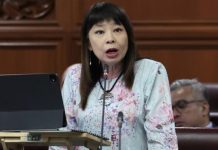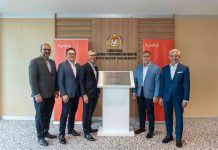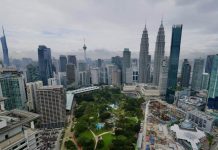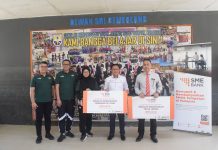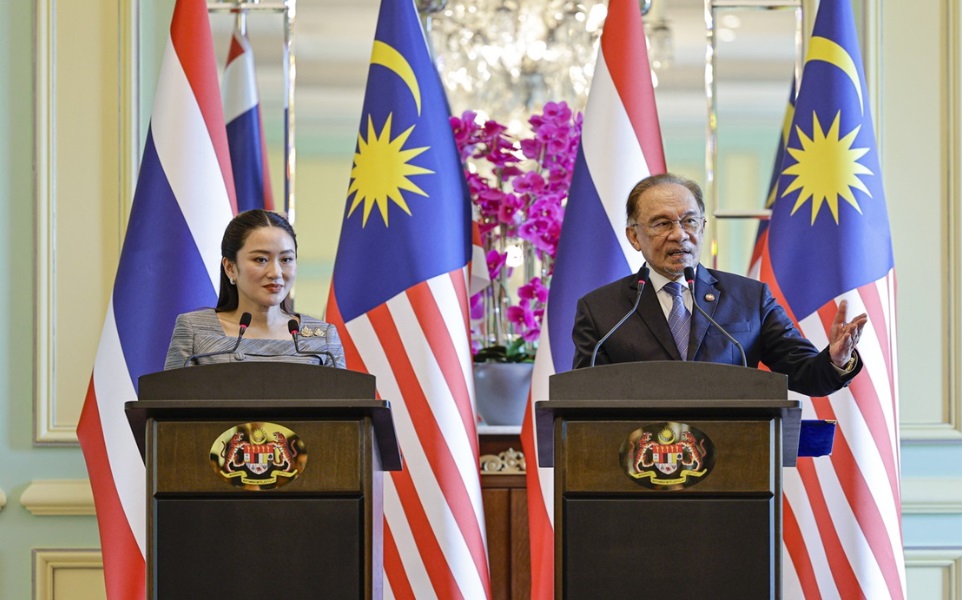
Malaysia and Thailand have reaffirmed their commitment to enhance investment and bilateral trade – through the Joint Task Force on Trade and Investment – with a target of US$30 billion by 2027.
Prime Minister Datuk Seri Anwar Ibrahim said that while the target may seem ambitious, the significant economic potential in both Thailand and Malaysia makes it an objective that both countries must work towards.
At a joint press conference with Thailand’s Prime Minister Paetongtarn Shinawatra, Anwar said that the northern provinces in Malaysia need additional focus and investment, similar to the needs of the southern provinces in Thailand.
While being on an official visit to Malaysia since assuming office in August 2024, Paetongtarn witnessed the exchange of a Memorandum of Understanding (MOU) on rubber between Malaysian Rubber Board director-general Datuk Dr Zairossani Mohd Nor and the Rubber Authority of Thailand’s acting governor Sukatus Tarngwiriyakul.
Paetongtarn said that in terms of economic cooperation, both countries will focus on efforts to trade and invest in border connectivity, the digital economy and tourism.
“We will work towards the trade target of US$30 billion by 2027. For the border areas, we discussed the need to address the flood problems faced by both countries and we will continue to work closely to improve border road and rail connectivity to facilitate more trade and people-to-people interactions.
“After the meetings, we witnessed the signing of two important MOUs on rubber and cultural cooperation. I am confident this will strengthen our economic relations,” she added.
From a joint statement released by the Ministry of Foreign Affairs, Anwar and Partongtarn encouraged relevant authorities of both countries to explore deeper cooperation through MOUs between the Digital Economy Promotion Agency of Thailand and the Malaysia Digital Economy Corporation (MDEC) signed in 2023, especially in the context of the rubber, tourism, halal and digital industries, the energy grid and gas supply as well as border management.
According to the statement, this is to create a conducive environment that attracts angel investors to support potential technology companies in both countries.
The two leaders also agreed to develop a greater complementarity of the industry in both countries, in cognisant of the fact that the global halal economy may reach US$5 trillion by 2030.
“This includes the continuation of joint export promotional activities on halal goods and services, the exchanges of best practices and business know-how, research and development (R&D) of halal products as well as more active collaboration involving Malaysian and Thai public and private sectors.
“Malaysia is open to supporting Thai officials in developing a local halal ecosystem by offering courses under the Malaysian Technical Cooperation Programme. This initiative would provide an opportunity for Thailand to gain insights into halal standards and practices while helping to strengthen its halal sector,” the statement said.
The prime ministers also encouraged authorities to expedite the possible cooperation to link the Special Border Economic Zones (SBEZs) between Malaysia and Thailand, particularly the Bukit Kayu Hitam SBEZ in Kedah, the Chuping Valley Industrial Area in Perlis, the Pasir Mas Halal Park in Kelantan and the special Economic Zone (SEZ) in the Southern Industrial Estate in Songkhla and the SEZ in Narathiwat.
“The two prime ministers are pleased with the ongoing cooperation through the Malaysia-Thailand Joint Development Asea (MTJDA) which continues to guarantee a healthy supply of gas sales to Malaysia and Thailand and provide a positive impact on livelihoods through job opportunities and spurring the local economy.
“Thailand also expressed its appreciation to Malaysia for the support during the gas supply shortage in 2023, which helped to ensure Thailand’s energy security,” the statement noted.
In addition, both prime ministers reaffirmed their support of the existing energy cooperation and initiatives, which are central to the shared vision of a more integrated, sustainable and secure energy future for the region, including under the ASEAN Power Grid Initiative.
To promote greater linkages as well as increase cross-border flows of goods and passengers between Malaysia and Thailand, as well as the overall region, the prime ministers have entrusted relevant agencies to accelerate the progress on the proposed integrated double-track rail link between Ipoh-Padang Besar and Padang Besar-Hat Yai and the high-speed rail alignment in both countries.
“Both prime ministers concurred that the facilitation of road- and rail-based movement of goods and passengers is paramount to the increasing of bilateral trade volume between Malaysia and Thailand as well as achieving ASEAN regional integration.
“In this regard, they urged the relevant agencies on both sides to expedite the negotiations on the MOUs on the cross-border transportations of goods and passengers,” the statement said.
Concurrently, both sides agreed to facilitate permit requirements for plant-based goods transiting through Thailand via the ASEAN Express freight train service between Malaysia and China.






